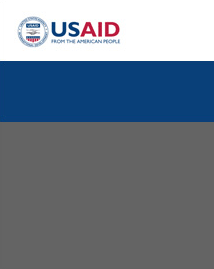Speeches Shim
USAID’s Cacao Alliance with The Howard G. Buffett Foundation, the Department of Agriculture (USDA), and Catholic Relief Services (CRS), provides assistance to approximately 6,500 small-scale farmers to help reactivate cacao production and exports in El Salvador that will increase incomes and jobs to reduce illegal immigration.
Despite the importance of cacao in pre-colonial Mesoamerica as a crop, and as the country’s first currency, cacao bean production is almost non-existent today in El Salvador. Private and public sector investment in cacao has been largely absent because of the severely limited access to genetic material and lack of production and processing knowledge. Yet, El Salvador has the potential to produce high quality, specialty cacao that has great market demand. Cacao also offers a viable alternative for coffee growers that have been affected by coffee rust. By reactivating cacao, El Salvador can increase livelihoods for farmers and generate much needed employment that can help reduce illegal immigration.
The alliance, led by CRS, includes Lutheran World Relief (LWR), CLUSA-El Salvador and Cáritas El Salvador. The Mexican Agency of Cooperation for International Development (AMEXCID) also supports this effort, as well as the Salvadoran government.
The project expects to boost the agriculture economy and economic growth in 109 municipalities by positioning El Salvador as a net producer and exporter of high quality, fine aroma cacao. The reactivation of cacao is expected to increase farmers’ incomes and food security, and generate up to 13,000 jobs in the cacao value chain (farm production, distribution and processing).
USAID assistance is also increasing biodiversity by restoring forests and generating resilience to global climate change. Through technical assistance to small farmers, approximately 6,500 hectares of cacao will be grown under diversified agroforestry systems. Cacao is also an alternative crop for coffee farmers in low altitude zones affected by coffee leaf rust, which caused heavy coffee crop losses.
By training producer organizations, supporting a national policy framework, and building institutional capacity in the cacao value chain, farmers will be better positioned to compete in the international cacao market.


Comment
Make a general inquiry or suggest an improvement.